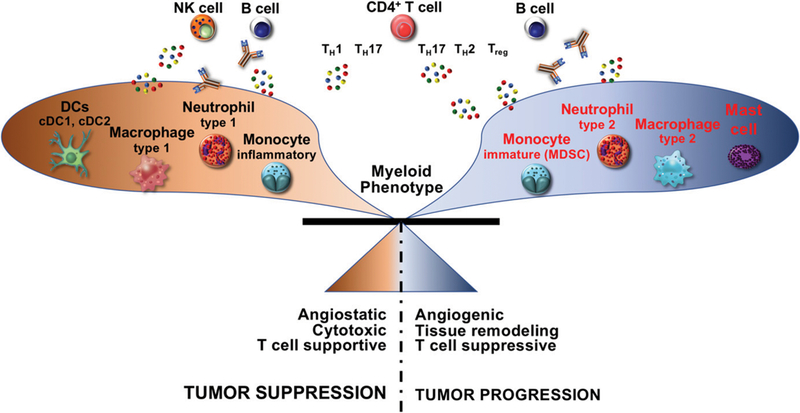FIGURE 4. Adaptive Immune Responses Dictate Myeloid Cell Activity to Influence Tumor Progression.

Although regulation of adaptive and innate immune responses is likely bidirectional and can be altered by treatment modalities, different adaptive cells can also promote either pro- or antitumor myeloid cell phenotype and function and together influence tumor progression. In cases where the immune response to cancer results in increased TH1 cytokines by adaptive cells (e.g., CD4+ T cells and natural killer [NK] cells), this induces myeloid cell bioactivity that promotes tumor stabilization or regression. On the other hand, when the responding adaptive response includes chronic B cell, TH2, and regulatory T-cell activation, myeloid cells upregulate programs that promote tumor progression, including angiogenesis and immunosuppression. Abbreviations: DCs, dendritic cells; MDSCs, myeloid-derived suppressor cells.
